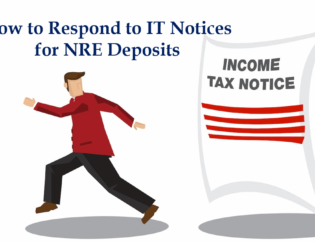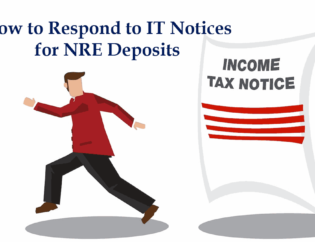However, with increased compliance, government effort to curb black money and provision of mandatory rigorous imprisonment for guilty, it is extremely critical to understand the meaning and implications of a Benami Transaction.
The Benami Transactions (Prohibition) Amendment Act, 2016, which is an amendment of the older Benami Transactions (Prohibition) Act 1988 defines and regulates the Benami Properties/Transactions and is effective from November 1, 2016.
What is a Benami Transaction?
In simple term, a Benami transaction is a transaction where the legal owner and payer of a property transaction are two different persons.
As per the revised provisions, a Benami transaction is:
- A transaction where a property is transferred to or held by one person for direct or indirect, immediate or future benefit of another person, who has provided or paid the consideration, except when
i.) An HUF is purchasing a property in the name of a Karta, or any other member from known sources;
ii.) A person is holding the property in a fiduciary capacity (e.g. trustee, executor, partner of a partnership firm, director of a company, a depository participant, etc.);
iii.) An individual is purchasing a property in the name of his spouse or any child provided the consideration is paid out of the known sources;
iv.) Any person is purchasing anproperty in the name of his brother or sister or lineal ascendant or descendant, where he is one of the joint-owners, provided the consideration is paid out of the known sources; or - A transaction carried out in a fictitious name; or
- A transaction where the owner of the property is not aware of or denies knowledge of such ownership;
- A transaction where the person providing the consideration is not traceable or is fictitious.
Any transaction where possession of any immovable property is taken as a part performance of a contract is not a Benami transaction if the contract is registered and consideration as well as stamp duty have been paid.
Property would include asset of any kind, whether movable or immovable, tangible or intangible, and includes rights or interest as well as proceeds from the property.
Understanding the Meaning of a Benami transaction through Examples:
As it could be very difficult to know the meaning of the Benami Transactions just by reading the same, I have given following 15 examples to really understand the meaning:
- Mr. A, an NRI and a resident of USA, gives a gift of Rs. 10,000,000 from his NRO account to his resident father, who invested in mutual funds in his own name as a single owner in India, with an intention to return the gift amount to his son in future, is a Benami Transaction.
- Mr. B, an NRI and a resident of South Africa, purchased an office for Rs. 15,000,000 in the name of his mother Mrs. C and himself as joint holders from his NRE account, is NOT a Benami Transaction.
- Mr. D, an NRI from New Zealand purchased an apartment for Rs. 10,000,000 and made payment of Rs. 7,500,000 officially by cheque from his NRE account and Rs. 2,500,000 unofficially in cash. For the registration, stamp duty payment, TDS as well as in all correspondence and documentation, Rs. 7,500,000 was used as official consideration of property, which was purchased in his name. In such case, while, cash was involved, this may NOT be a Benami transaction.
- Mr. E, an NRI from Singapore purchased an office for Rs. 20,000,000. The payment of Rs. 8,000,000 was made unofficially in cash and Rs. 12,000,000 was made officially by cheques. However, only Rs. 3,000,000 was paid from his bank account and Rs. 9,000,000 was paid in cash to builder who arranged cheques of unknown persons. The documentation includes cheques information (cheque number, date, amount) of total Rs. 12,000,000 paid for the property. For the registration, stamp duty payment, as well as in all correspondence and documentation, Rs. 12,000,000 was used as official consideration of property, which was purchased in his name. This is a Benami transaction as 9,000,000 was not paid from Mr. E’s known sources / bank account.
- Mr. F, an NRI and a resident of Germany, invested in equity shares of various listed companies of Rs. 10,000,000 in name of his wife Mrs. Heena and himself as joint holders from an account not disclosed to tax authorities (unknown source), is a Benami Transaction.
- Mr. G, an NRI and a resident of Japan, invested in Bank FD of 5,000,000 in name of his wife Mrs. G as a single owner from his official NRO account, is NOT a Benami Transaction. However, income tax laws relating to clubbing provisions may apply.
- Mr. H an Indian resident, held PPF account of Rs. 3,000,000 in name of his grand daughter, who is an NRI and a resident of UK as a single owner, is a Benami transaction. Also, it is not legal as NRIs are not allowed to open a PPF account.
- Mr. I, an NRI and a resident of USA, held corporate deposits of Rs. 2,500,000 in name of his brother’s wife or wife’s brother as first holder and himself as second holder is a Benami transaction.
- Mr. J, an NRI and a resident of Mexico booked (purchased rights in acquiring) a commercial property of Rs. 50,000,000 in name of Mr. Farhanitrate, which is a fictitious person, is a Benami transaction.
- Mr. K, an NRI and a resident of Canada, purchased an apartment in name of his son Mr. L for Rs. 20,000,000 is NOT a Benami transaction.
- Mr. M, an Indian resident, invested Rs. 10,000,000 in a bank FD in the name of his married daughter, Mrs. N, who is a US resident. If she has no knowledge and denies ownership of the FD, is a Benami transaction.
- Gold of Rs. 5,000,000 was purchased in the name of Ms. M, an NRI from Dubai, UAE and the consideration was paid by Mr. Prerajulisation, who is not traceable, is a Benami transaction.
- Mr.O, an NRI from Switzerland sold a Benami property for Rs. 50,000,000 by cheque and deposited the sale proceeds in his NRO bank account. The amount in the bank account is a Benami property.
- Mr.P, an NRI from China sold a Benami residential property for Rs. 10,000,000 by cheque, deposited the sale proceeds in his NRO bank account, paid taxes and filed income tax return. He buys another property from his after-tax paid proceeds in his own name. Whether the transaction of buying and holding 2nd property is a Benami transaction, is debatable. Also, issues could arise during the scrutiny of Income Tax return and sale of property.
- Mr.Q has owned a Benami office property since 2010. As he is still holding the property on Nov 1, 2016, this would also be considered as a Benami transaction as per the new amended act and will be subject to the authority and penalty of the amended act.
Authority:
Four authorities who will conduct inquiries or investigations are i) Initiating Officer, (ii) Approving Authority, (iii) Administrator, and (iv) Adjudicating Authority.
On suspicion, an Initiating Officer can issue a notice to any Benamidar. Based on permission from an Approving Authority, an Initiating Officer may hold the property for 90 days. Upon end of 90 days, case may be referred to the Adjudicating Authority. The Adjudicating Authority will examine the documentary evidence and pass an order on whether the property is held as Benami. Based on the order, the Administer will receive and handle the property subject to prescribed conditions.
Any appeal against any orders passed by the Adjudicating Authority will be heard by an Appellate Tribunal and appeal against orders of the Appellate Tribunal will go to the high court.
Penalty or Consequences of a benami transaction:
Anyone found guild of entering into a Benami transaction would be liable for both financial penalty and imprisonment:
- Financial Penalty of up to 25% of the fair market value of the property
- Rigorous imprisonment for minimum of 1 Year to maximum of 7 year.
If anyone gives incorrect information or explanation in response to any inquiry to any authority
- Financial penalty up to 10% of the fair market value of the property and
- Rigorous imprisonment of minimum 6 months to maximum of 5 years.
My Advice:
- Please do not be complacent and think that “nothing will happen to you” or “this is how things are done in India” or “I am a very small fish” or “no one will know” or “I have done this many times in past”, etc.
- Before transferring money to someone else, relative or not, please define the nature of transfer; i.e. whether it is a loan, gift or income. The rules, requirements and conditions as per applicable laws (e.g. FEMA, Income Tax, etc.) for the respective nature need to be complied with.
- It is important to realize that as Income Tax returns are filed individually, there is no “joint” concept in true sense and is mainly for convenience in India. Person who has invested the money is considered the real owner. Please ensure that the transaction is not a Benami Transaction.
- If by mistake, you have entered into a Benami Transaction, seek an experienced professional help to remedy the same.









Nice Information
Thanks for your wonderful articles. Really impressed. I am USC living in India for last 9 years. I have joint demat (with parents) with shares worth Rs25L. Most of the shares were purchased by my father 20-25 years ago. Cost price unknown as physical shares were converted to demat long time ago & there could be shares given under rights issues by companies.
I had purchased some (may be Rs2 lakh) in last 9 years. I wish to gift my parents the shares as most of it is their money. Can I transfer the shares to their demat? Will the gift be ok with India and US considering the limits for gift as per US law and considering the new benami law?
1. In India, there is no tax on gift received by close relative so is a tax exempt gift for your father and you.
2. For USA, as the value of investment is 25L i.e. more than $14000, as a US citizen, it is above the threshold of gift tax. So, you would have to pay gift tax in USA. However, if you make a declaration to be counted as a part of your lifetime gift (estate duty limit), there won’t be any tax to you. I would assume that you have reported your Demat account in your FBAR/FATCA compliance requirement. Else, how can you give gift of money that you did not own? Thanks.
Additional information
Please elaborate. Thanks.
Dear Sir,
Thanks for detailed information.
I would like to know further,
If a seller is not accepting money from an NRI account and buyer is paying money to seller through buyer’s brother bank account and getting registration of land on buyer himself as NRI.
Is it also to treated as non benami transactions.
Waiting for your advise.
Regards
I think this may be a classic case of a benami transaction if both brothers are not the joint holders of the property. Also, I haven’t heard any seller having restrictions of accepting funds from NRI account. Thanks.
This Information really helps me to understand what actually is Benami Transaction.
And I think no one can give such type of best examples other then you.
Thank you
This is a very informative and helpful post, very honest and practical advise. Thank you so much for a detailed post. It’s very helpful for all .Specially this complete information will be helping to all. Thanks!
Dear Mr.Jigar Patel,
Thank you very much for the detailed information. Would like to get more information in the case below.
A relative of mine, who is an NRI, is transferring funds to his parent (who is a resident in India) and parent is investing in equities in India, without knowing that it is a benami transaction. How to correct this? Can the parent transfer the money back to his son’s NRO account without any issues ? Or, can the parent transfer the equities to his son’s demat account ?
Thanking you in advance.
Gouri.
Appending to my earlier post:
Can my relative or his parent report this directly to income tax authorities that they have done it unknowlingly ? Will the IT authorities give chance of taking corrective measures ?
Thanks,
Gouri
It is okay provided the money from NRI son to his parent is a gift and not a loan. NRI son is allowed to gift his parents without any income tax consequences. Thanks.
Thank you very much for your prompt reply.
Would like to get one more clarification. Parent is investing this money into equities. How to prove that it is not on behalf of his NRI son. If the parent is not mentioning his son as his NRI son as nominee, is sufficient ?
Thank you,
I would recommend to have a gift deed/letter from son to parents. Thanks.
Dear sir,
Its amazing and so informative information u are proving to so many desired persons. thanks. I was just reading the comments and your reply. thanks for every information you have provided and updated.
I have a question:
I have FD/House/pension in India, this is the first visit to foreign country with my children. i may not stay here permanently. do i have to open NRO/NRE account for transferring the money abroad or thru exisiting saving bank a/c source, can we do it. If i sell my property in future.
Thanks for the response in future.
gopal
Only if you are a Non-Resident under FEMA, you are allowed to have NRO/NRE account. As a resident, you are allowed to transfer upto $250,000 per year under LRS – Liberalized Remittance Scheme. I won’t think you would need such high amount every year to pay for exps. The money under LRS can be transferred from your resident bank account. Thanks.
Sir,
I wanted to know that ….we had a garage back in 2002 owned by my father and he died in 2003. Then we sold the garage at about 2 lakhs. Then my mother bought a piece of land in locality, I was a child then.
Now in 2018 she has made athat land a gift deed to me at present rate of about 7 lacs.
Sir, is that a benami property.??
Your quick reply will appreciated.
If all the transfers have been documented and stamp duty is paid, it is not a benami property. Thanks.
Dear Sir
I want to know about following transaction as covered under Benami or not
1) Mr. A who is Indian Resident give Interest free loan by Cheque/DD/Online Transfer to Mr. B who is also Indian Resident to Buy a Land or Invest in Company/Firm in the name of Mr B.
Actual beneficiary is Mr. A as matually decided beteen Mr. A & B. But on all the records papers Mr. B is beneficiary. Mr. B will show said investment & Loan in his Balance sheet and Mr. B will pay every tax including Income Tax on income arise on said investment.
Is above is Banami Transaction
Is your suggestion will differ if Loan with minimum interest rate as FD rate by A to B
Any transaction where the legal owner and beneficial owner are different, it is a benami transaction. In your case Mr. A is the beneficial owner and Mr. B is the legal owner so it is a benami transaction. Rate of interest is immaterial. Thanks.
Hello Sir, if I buy an immovable property but does not get it registered in my name and only possession deed (kabja karar) is executed, will the property be considered as a benami property?
It would depend on whose name the property is owned. Also, whether you have paid all the consideration. And, if property is in the name of a builder/non-relative and you have paid all the funds, the question would be whether you have paid the stamp duty. A lot of investors, to save stamp duty, pay the price of property but does not register in hope to quickly sell the same to another investor/buyer to make quick money and to save the stamp duty. To discourage the practice, payment of stamp duty is required if you do not want the transaction to be considered as a benami transaction. Thanks.
sir, my question is if a person buys a property in 2000, the cost of the flat that period being 35 lac on his wife’s name and 2 relative with none of the above a I.T payer the cost now is 2 . 75 cr is the flat falls in benami segment. Mumbai
1. It would depend on the who paid for the property and whether the joint names (relative) in which the property is owned, whether they are beneficial owner or just entered the name as convenience.
2. It can only be ascertained based on the purchase deed. If silent, it may be considered as beneficial owners too. If beneficial owner, the share of relatives may be considered as benami property.
3. The investment in wife’s name is allowed and may not considered as benami property. However, it should not be to circumvent the laws and the income of wife would be clubbed in the husband’s income while filing income tax return. Thanks.
I am NRI, my wife is Resident Indian. I gift my money earned outside india to my wife resident account in india.
She invest in stocks market as she has the passion for it.
1) Is this a Benami transacation ?
2) Rs 20,000 or 30,000 sometimes she transfer it from her resident account to my NRO account to repay my personal loan in India, is this Benami transacation ?
1. While gift from husband to wife is allowed, any income would be clubbed into husband’s income i.e. considered as income of the husband. So, while it may not be a benami transaction, it would be considered as your income.
2. Any investments / transfer between spouse is not considered as benami transaction.
3. I would advise NOT to make any internal transfers between spouse for simplicity and avoiding any complications as for income tax purposes in India, husband and wife are considered two separate persons and taxed as assessed separately. Thanks.
If some one (A) has taken 5 lakh rupee from his brother (B) and invested in stock market and made a profit of 11 lakh…..later he (A) gave back 5 lakh to his brother (B) and (A) filed ITR return on 11 lakh as short term capital gain…..Are these are benami transactions…..And if these are benami transactions how it can be resolved as both the persons are not aware of this
Not a benami transaction if it is properly recorded in the books of account of both A and B and A files tax return reporting the STCG. Thanks.
Sir, Your reply to the query raised by Mr Vijay Aggarwal in Feb 2018 requires reiteration. If I lend money to anybody for getting more Income than a Fixed Deposit or if I lend money to my relative or friend out of love and affection at a low/reasonable interest and that person buys an apartment or land for his use how does it become BENAMI?
If you lend the money for income, whether interest free or low or high interest, it is okay. However, the money is to be used for business purpose and not for investments.There are restrictions for use of money borrowed from NRIs. For residents, there may not be any restrictions but it should be in the nature of a loan with or without interest and not share of profit or any other understanding. Thanks.
I have a query if you could answer it,
I lent 20 odd lacs (interest free) by way of cheques to a friend without a written agreement and He returned the money to me after sometime in cash. But now I’ve learnt that he purchased a property from that money which is under the radar of Benami transactions adjudicating authority. What is my liability in all this? seeing that I have not shared any profits in the said benami property nor did I lend the money with intention of it being used for illegal purposes? what is the legal justification/ provision/ judgment I could use in case I’m being made an accomplice?
As the nature of transaction between you and your friend is that of loan and not investment in his/her name on your behalf, you may be okay. Also, NRI is allowed to give loan to a resident individual provided certain conditions under FEMA are complied with. I would recommend you to get a loan agreement/letter signed by you and your friend detailing the transactions with amount, term, rate of interest, use of funds, and any other terms that comply with FEMA laws. Thanks.
My son has taken up a job in a foreign country and earlier he has earned in India. He wants to gift his entire savings to us his parents as we are aged and we would like to put it in Mutual Fund in our name for growth as otherwise we have to pay LTCG after 31-01-2018. The amount is nearly 50 Lakhs Kindly advise how he can do it without breaking the law
You are allowed to receive gift from your son without limit and the gift would not be taxable in India. Your son may be liable to gift tax based on the gift tax laws of his country of residence. It is recommended to have a gift deed/letter and the gift amount to be paid via bank cheque. Thanks.
Request your clarification on the below scenario:
A (son) buys a vacant site in the name of B(father) (before 1Nov 2016) and also builds a house taking company loan and bank loan (also before 1Nov2016). The property document is in the name of B only. The loan documents have both B and A names. B has lived in the house and has earned rent also from the property (i.e the son’s investment has benefited the father). Is this a benami transaction? Pl norte that all of A’s money is from savings from his salary (i.e known sources of income after paying due income taxes) Thanks.
Not a benami transaction if the money from son to father is treated as gift. Thanks.
Sir,
My mama(maternal uncle) owes 2crores to my brother. My mama transfers a plot to my mother through gift deed. In next 10 days, my mother transfers to my brother as a gift… Both gift deeds were registered & stamp duty paid. Is this Benami transaction ? My mama is still living in that building.
Appending to my post :- mama paid back the amount he owed to my brother by gifting land to my mother & in turn, my mother gifted to brother. So, final beneficiary is my brother.
Gift of property is allowed. Your brother is also allowed to receive gift of property directly from his mama (I would assume he is your real brother and have same relationship with your maternal uncle). Transferring property as Gift is not a Benami transaction as stamp duty is paid and transaction is registered. Thanks.
sir please let me know, when A was working with B as an assitant since 2009 and B purchased some DD’s for stamp duty from A account and those DD’s used for purchase agriculture land in favor of ‘C’ on 2011. C was brother-in-law for B. Will be A punished by income tax department or what will be consequences?
1. I am not sure how you can purchase DD as it is issued by the bank.
2. A may be involved in the benami transaction if money from his bank account (DD) were used to buy a property in a name other than A. So if property bought in C’s name using A’s money, yes, it is a benami transaction and A may be punished.
3. If C buy the property from A or make payment to A/B, it may be okay. The name on the property and the person who paid for the property must be same (except explicit exceptions). Thanks.
Sir, My question is a co-operative bank president Mr.”A” transfer his residencial site in the name of “B” with the intension of raising the loan from the same Bank where he is president/Chairman and he raises the loan on the said property uses and after two or three years, closes the loan by transferring the money from his (A) savings account and the same property on which loan was raised and transfer the property either in his name or in his family members name. Will it be a Benami transaction? Please explain
Thank you
I am not sure why he would do that as the loan would be secured by the residential property. This will unnecessarily include stamp duty for registering property multiple times. Also, any transfer to non-relative without consideration may also be subject to gift tax laws. When the person owning the property and person paying the money are two different persons, it would be a benami transaction. If all the transactions are registered with paying stamp duty as well as reporting in income tax, it may not be a benami transaction. Thanks.
Dear Sir,
A flat was bought recently around 40 lacs in the name of my mother as the sole owner.
Consideration was paid by my mother, father and me. Since my father and me are not on sale deed, is this a benami transaction ?
Thank you
It is not a benami transaction as as a son, you are allowed to gift money to your mother and as a husband, your father is allowed to invest in the name of your mother. However, it could complicate the matter when you sell the property as any income on sale of property from funds from father would be clubbed into your father. I would recommend to check with your CA when you sell the property. Thanks.
Thank you for the helpful information..
Please help me in this case..
My friend’s father bought a property in 1992 for about some thousands rupees.. in name of a person which he cant find in present date. Today’s value of property is about 50 lakhs.
Is that property is still a benami property and is it punishable in today’s date?
If yes , how much punishment ?
Is there any method to get rid of this tension..?
What should I do in this situation ??
Thanks
Yes, this could be considered as a benami transaction. I suggest you take professional help for this situation. Thanks.
I have a query and would like your expert advice on the same.
‘A’ who is a resident indian wishes to buy agricultural land in India on his & his spouse (also indian citizen) . He has part of the sum required ready, and for another ( and substantial larger part , say for about 70% of the required amount ) amount , he is receiving a gift from his NRI daughter & NRI son-in -law.
It may happen later that ‘A’ may want to pass on this property to NRI daughter as an inheritance.
Can this be classified as Benami transaction?
Also how can the transaction be carried out so that all legal and tax considerations are followed ?
Please advise. A sooner reply will be really appreciated !!!! Thank you
1. In case of gift, the recipient of gift (donee) would become the legal owner of money received. Once his, he can do whatever. So, if you consider money transfer by daughter and son-in-law as gift, it may be okay. However, in gift, there is no expectation of reciprocity i.e. receiving property as inheritance. If there is reciprocity, it may not be considered as gift but a loan. And, a resident is not allowed to borrow from an NRI close relative for buying agricultural property.
2. Subject to 1, assuming it is a genuine gift, the money belongs to recipient and then he would be buying property from his own money and as a result, it may not be considered as a benami transaction.
3. FEMA does not allow an NRI to buy an agricultural property, not full or not as a joint holder. If there is a link between gift from NRI and money used for buying agricultural property and will to give property to NRI, it may be considered as buying of property in contravention of FEMA laws.
4. I would not recommend using NRI funds for buying agricultural property. Thanks.
Thank you so much sir for your quick reply and guidance. I appreciate it immensely . Thank you